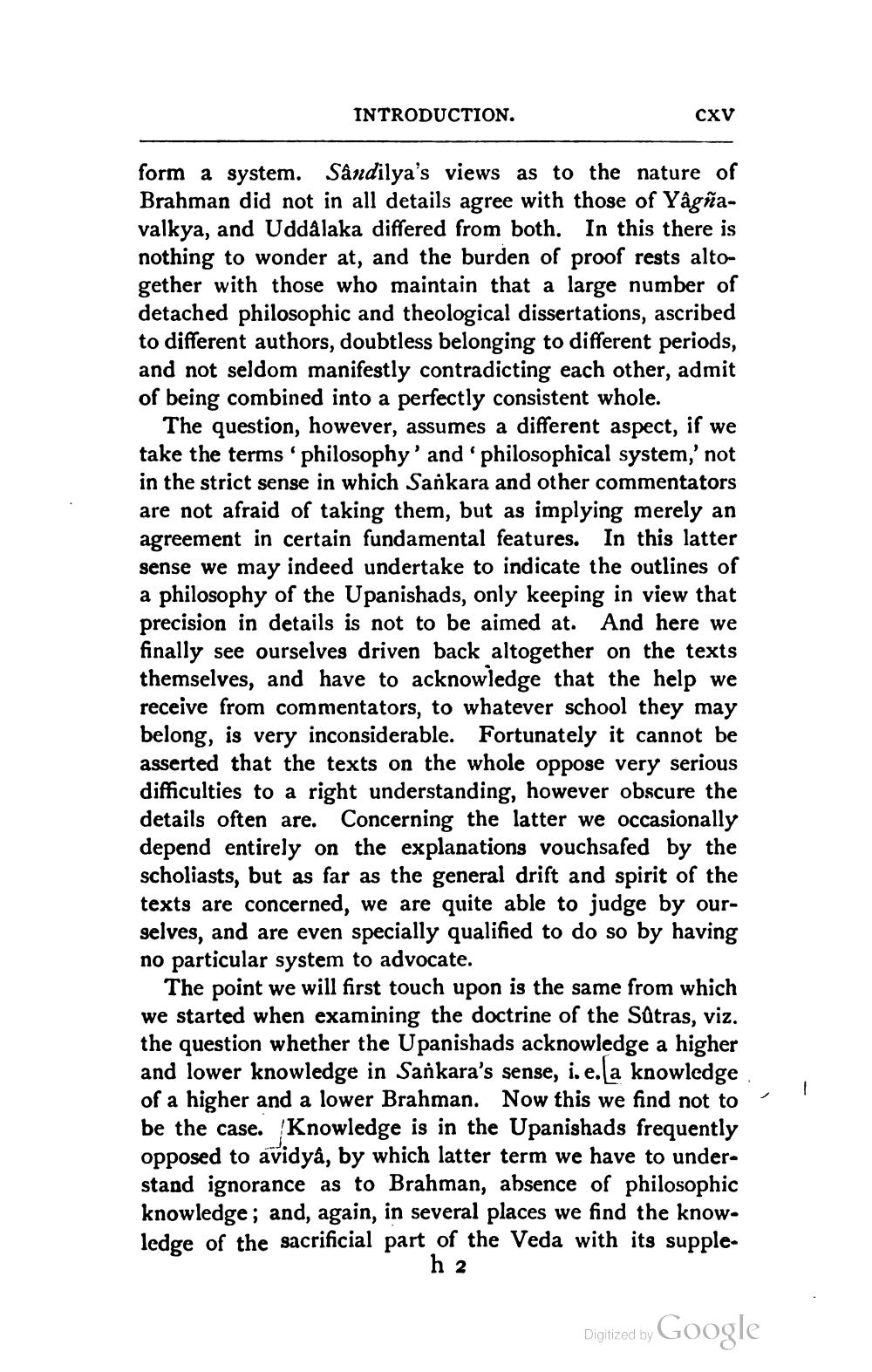________________
INTRODUCTION.
CXV
form a system. Sandilya's views as to the nature of Brahman did not in all details agree with those of Yâgñavalkya, and Uddalaka differed from both. In this there is nothing to wonder at, and the burden of proof rests altogether with those who maintain that a large number of detached philosophic and theological dissertations, ascribed to different authors, doubtless belonging to different periods, and not seldom manifestly contradicting each other, admit of being combined into a perfectly consistent whole.
The question, however, assumes a different aspect, if we take the terms 'philosophy' and 'philosophical system,' not in the strict sense in which Sankara and other commentators are not afraid of taking them, but as implying merely an agreement in certain fundamental features. In this latter sense we may indeed undertake to indicate the outlines of a philosophy of the Upanishads, only keeping in view that precision in details is not to be aimed at. And here we finally see ourselves driven back altogether on the texts themselves, and have to acknowledge that the help we receive from commentators, to whatever school they may belong, is very inconsiderable. Fortunately it cannot be asserted that the texts on the whole oppose very serious difficulties to a right understanding, however obscure the details often are. Concerning the latter we occasionally depend entirely on the explanations vouchsafed by the scholiasts, but as far as the general drift and spirit of the texts are concerned, we are quite able to judge by ourselves, and are even specially qualified to do so by having no particular system to advocate.
The point we will first touch upon is the same from which we started when examining the doctrine of the Satras, viz. the question whether the Upanishads acknowledge a higher and lower knowledge in Sankara's sense, i.e. a knowledge of a higher and a lower Brahman. Now this we find not to be the case. Knowledge is in the Upanishads frequently opposed to avidya, by which latter term we have to understand ignorance as to Brahman, absence of philosophic knowledge; and, again, in several places we find the knowledge of the sacrificial part of the Veda with its supple.
h 2
Digitized by Google
Digitized by




